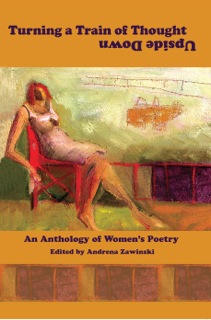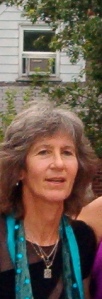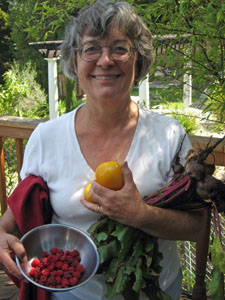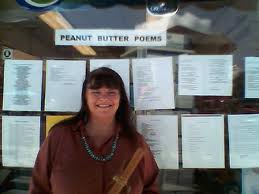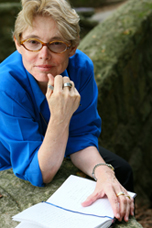Anthology Release Reading for
Turning a Train of Thought Upside-Down
Edited by Andrena Zawinski
and featuring
Tobey Kaplan, Dawn McGuire, Judith Offer and Nanette Deetz
Celebrate the publication of a new anthology by the San Francisco Bay Area Women’s Poetry Salon with a free reading by Tobey Kaplan, Dawn McGuire, Judith Offer and Nanette Deetz. Copies of the anthology, Turning a Train of Thought Upside-Down, edited by Andrena Zawinski, will be available for sale. Sponsored by the Sacramento Poetry Center and Poets and Writers, Inc., with funding it has received from the James Irvine Foundation. More info about the book is at:
http://scarlettanager.com/turning-a-train-of-thought-upside-down.html
Monday Sept. 17 at 7:30 PM
Host: Rebecca Moos-Morrison
Tobey Kaplan, a poet originally from New York City, has been teaching in the San Francisco Bay Area for over thirty years. She is an active member of California Poets in the Schools. Ms. Kaplan has given readings, workshops and presentations throughout the country regarding creative process, literacy and social change. Her honors include: being named Dorland Mountain Colony Fellow, and Affiliate Artist at the Headlands Center for the Arts, as well as being the recipient of a Bay Area Award (New Langton Arts, 1996). Among her publications are: Across the Great Divide ( Androgyne, 1995) and a recent feature in the East Bay Monthly and on the Omnidawn Blog Her poems are contained in numerous literary anthologies. As an adjunct faculty member, Tobey Kaplan currently teaches literature, humanities, reading and composition at Chabot, Laney and Merritt Colleges. As a long-time arts and cultural resources advocate, she is currently mentoring Native American adults and children to remain engaged in their education. She maintains her commitment to the primacy of imaginative language.
Judith Offer has had two daughters, five books of poetry and dozens of plays. (Eighteen of the latter, including six musicals, have been produced.) She has read her poetry at scores of poetry venues, but is particularly delighted to have been included in the Library of Congress series and on “All Things Considered,” on NPR. Her writing reflects her childhood in a large Catholic family—with some Jewish roots—her experience as teacher, community organizer, musician, historian, gardener, and all-purpose volunteer, and her special fascination with her roles of wife and mother. Her most recent book of poetry, called DOUBLE CROSSING, is about Oakland, California, where she lives with her husband, Stuart. More detailed information is available at www.JudithOffer.com
Nanette Bradley Deetz is a poet of Cherokee/Dakota/German descent who lives in Alameda and teaches at Laney College in the Department of Rehabilitation. She holds a B.A. in Theater Arts/Dance and an M.A. in Dance/Theater Arts from UCLA. She also holds an M.A. in Counseling Psychology. Her poetry appears in Alameda Island Theme Poems anthologies (2004, 2005, 2006) and Turtle Island to Abya Yala: A Love Anthology of Art and Poetry by Native American and Latina Women and Turning a Train of Thought Upside Down and elsewhere. In 1994, she began a poetry/music band Redbird Giving.
Dawn McGuire is a neurologist and award-winning author of three poetry collections, including Hands On and The Aphasia Café. She grew up in Eastern Kentucky and was educated at Princeton University, Union Theological Seminary, Columbia College of Physicians and Surgeons. She is the 2011 co-winner of the Sarah Lawrence/Campbell Corner Language Exchange Poetry Prize for “poems that treat larger themes with lyric intensity.” McGuire is Professor of Neurology at Morehouse School of Medicine and divides her time between Atlanta and the San Francisco Bay area.
color first a thousand kids by Tobey Kaplan
first a thousand kids’ energy musing in late dark theatres of lonely houses her leg leans heavy my arm draped casually on her thigh not a day goes by without my considering her love of opera and some writers are terrific to remember clean my garage books full of O’Hara a soothsayer of long nights his poems quotidian like wrinkled lawns source of lavender lights stage lights silky bedding not a day goes by sleepers in the window layers of sand white boards smooth leaves construction parking a long goodnight barbecue where some man asked if she was from Thailand I want to tell her before I was born millions of crickets I offered a glass of water and she put it under her chair with the takeout we’re watching strange bodies on the stage inflatable shapes costumed phrases energetic silky colors like orange and appearances will not go on to say
Dear Salvation Army by Dawn McGuire
You can have the goat
I got for reading my poems
In Willits
He has balded my yard
Now he’s grazing my books
The bible from when I was baptized
is his favorite so far
He is a brindle-colored goat
and under other circumstances
a fine reward for a reading
The poet before me
got fish
Please arrange pick up very soon
I am okay with losing Leviticus
Would like to save Mark
and Ruth
CROW DANCE by Nanette Bradley Deetz
Black crow sitting under a pine tree,
white clouds against an azure sky.
Lazy wind whispers her secrets
as crow listens
from the edges of the world.
We watch each other from different galaxies;
circles, intersecting circles,
as the waters of Alameda Bay
flow around us.
Crow begins his dance
as squirrel appears from behind the pine tree.
Butterfly and dragonfly watch
as our galaxies intersect
for one moment,
under a pine tree by the bay;
dancing,
at the edge of the world.
Where Plums Once Hung by Judith Offer
I buried my words the other day,
Under the plum, out of the sun,
In the farthest part of the yard.
It was a little hard, parting with
Armloads of my heart’s charges:
Unsold poems, unknown stories,
Leftover notes and old programs.
But, I sowed ‘em, then hosed ‘em over.
It was, surely, a bit absurd.
But it was other words’ turns.
These versions had been heard.
They messed my desk, shelf-wrestled,
And pressed endlessly for attention.
It was necessary to eject ‘em.
They grumbled some, under the plum,
But I mulched their mumbling.
Now I wonder: will summer sun
Show clumps of puns where plums once hung?
And will my prose turn purpler
Because the plum-under earth’s now wordier?
